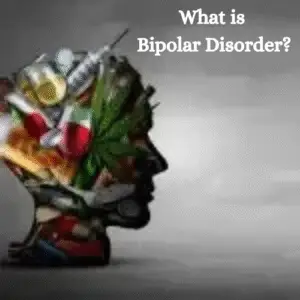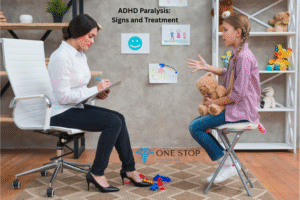Bipolar Disorder or Manic Depression
Bipolar disorder, also called manic depression, is a mental health condition that causes people to experience extreme mood changes. Symptoms of bipolar disorder can include periods of depression, followed by periods of mania or hypomania. Although bipolar disorder can be a lifelong condition, it is possible to manage the symptoms with medication and therapy. The highs, or mania, can be very intense and last for long periods. The lows, or depression, can be just as intense and last for long periods. People with bipolar disorder often have trouble functioning in their everyday lives.
Symptoms of bipolar disorder
Bipolar disorder is a mental illness that causes extreme shifts in mood, energy, and activity levels. People with bipolar disorder can have periods of intense happiness, followed by periods of deep depression. These mood swings can be so severe that they interfere with everyday life.
If you think you may have bipolar disorder, it’s important to see a mental health professional for an evaluation. Bipolar disorder is treatable, and there are many ways to manage the condition. With treatment, people with bipolar disorder can lead happy and productive lives.
Causes of bipolar disorder
There is no one cause of bipolar disorder. Instead, it is thought to be caused by a combination of genetic and environmental factors. Some people may be more likely to develop bipolar disorder if they have a family member with the condition. This suggests that there may be a genetic component to the disorder. However, even people with no family history of bipolar disorder can develop the condition. This suggests that other factors must also be involved. Environmental factors that may contribute to the development of bipolar disorder include stress, trauma, and substance abuse. These factors can trigger a manic or depressive episode in people who are already at risk for the condition.
Treatment for bipolar disorder
There are many different treatments available for bipolar disorder, and the best course of treatment will vary from person to person. Medication is often a key part of treatment, and several different types of medication can be effective in treating bipolar disorder. Therapy can also be an important part of treatment, and cognitive behavioral therapy (CBT) is particularly effective in treating bipolar disorder. In addition to medication and therapy, self-care and lifestyle changes can also help manage bipolar disorder.
Living with bipolar disorder
Bipolar disorder is a mental illness that can be very difficult to manage. It can cause extreme mood swings, from feeling extremely happy and excited (known as mania) to feeling very down and depressed (known as depression). People with bipolar disorder often have trouble functioning in their everyday lives and may even experience periods of psychosis (a break from reality).
There is no one-size-fits-all approach to managing bipolar disorder, but there are some things that can help. If you live with bipolar disorder, it’s important to find a treatment plan that works for you. This may involve medication, therapy, lifestyle changes, or a combination of these.
It can also be helpful to connect with others who understand what you’re going through. There are many online and in-person support groups for people with bipolar disorder. These can be a great way to share your experiences and learn from others who are dealing with similar challenges.
Conclusion
Bipolar disorder is a mental illness characterized by extreme mood swings, from highs (mania or hypomania) to lows (depression). It can be a very debilitating condition, affecting every aspect of a person’s life. However, there is hope: with proper treatment, people with bipolar disorder can lead happy and fulfilling lives.
If you think you may have bipolar disorder, please see a mental health professional for diagnosis and treatment. At One Stop Psychiatry
Contact us to start your journey toward balanced mental health with the help of expert care.
Address: Miramar, FL 33025 8910 Miramar Pkwy Office 309G,




